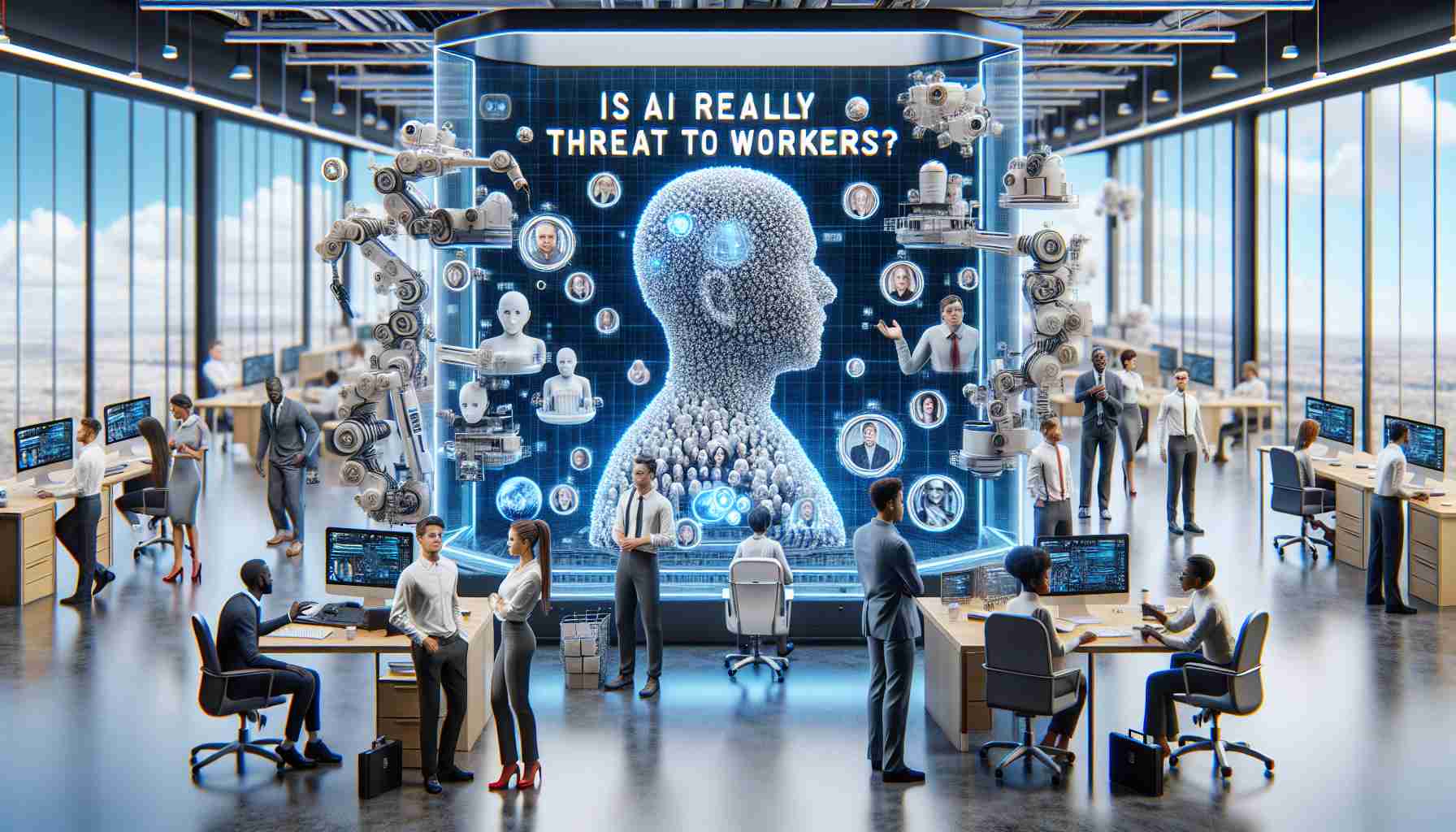Overview
A recent survey conducted by Beautiful.ai reveals that many managers are considering replacing their workforce with artificial intelligence (AI) tools in an effort to cut costs. Out of the 3,000 managers surveyed, 41% expressed their intention to replace workers with AI within the year, while an additional 48% believed that such a move would yield financial benefits. They argued that AI could potentially lead to lower salaries as less human labor would be required for certain tasks.
On the other hand, a significant number of managers (40%) were confident that AI could perform tasks just as effectively as human employees. They believed that teams could actually function well without the need for human workers. Furthermore, 66% of managers claimed to already be using AI tools to enhance efficiency and worker productivity in their own roles.
So, is AI a Friend or Foe to Workers?
While the survey results may suggest that AI could pose a threat to workers, Beautiful.ai takes a more collaborative perspective. The company suggests that AI should be viewed as a tool that can empower employees to generate more content in less time. It presents the idea that AI can act as a starting point for employees, allowing them to continue creating and innovating.
Interestingly, half of the respondents who currently use AI tools at work consider them as productivity-enhancing tools without any negative repercussions. In fact, 60% of those surveyed predicted that AI would positively contribute to their work, enhancing productivity rather than posing a threat. Beautiful.ai emphasizes that, despite advancements in AI, human oversight is still crucial at this stage of development.
Addressing Concerns
While fears about AI’s impact on job security and salaries persist, Beautiful.ai highlights that the number of managers actively seeking to replace workers with AI has significantly decreased compared to the previous year. This suggests a growing realization that AI can be leveraged as a tool rather than a competitor in the workplace.
FAQ
1. Can AI completely replace human workers?
While some managers believe that AI has the potential to replace human workers entirely, there is still a long way to go before that becomes a reality. AI is currently being utilized as a supportive tool in various industries, enhancing efficiency and productivity.
2. What are the benefits of integrating AI in the workforce?
Integrating AI in the workforce can lead to increased efficiency, improved productivity, and cost savings. AI tools can automate repetitive tasks, allowing employees to focus on more complex and creative work.
3. Will AI lead to job losses?
While AI may automate certain job functions, it also has the potential to create new roles and opportunities. As AI technology continues to evolve, it is important for workers to adapt and upskill in order to remain relevant in the changing job market.
4. Is human oversight still necessary when using AI?
Yes, human oversight is crucial when utilizing AI. Despite advancements in AI capabilities, human judgment, decision-making, and creative thinking are irreplaceable. AI should be seen as a tool to augment human capabilities rather than completely replace them.
(Source: [TechRadar](https://www.techradar.com))
Industry Overview
The rise of AI technology has brought numerous advancements and changes to various industries. From finance to healthcare, manufacturing to customer service, AI is being implemented to enhance efficiency, improve productivity, and drive innovation. The potential of AI is vast, with its ability to analyze vast amounts of data, perform complex tasks, and learn from patterns.
Market Forecasts
The market for AI technology is projected to grow significantly in the coming years. According to a report by Grand View Research, the global AI market size is expected to reach USD 733.7 billion by 2027, exhibiting a compound annual growth rate (CAGR) of 42.2%. This growth can be attributed to the increasing adoption of AI in various industries, as well as advancements in machine learning and natural language processing.
Issues Related to AI in the Workplace
While AI brings numerous benefits, it also raises concerns and challenges. One of the primary concerns is the potential impact on job security. As AI automates certain tasks, there is a fear that it could lead to job losses. However, experts argue that AI is more likely to transform job roles rather than completely eliminate them. It is believed that AI will create new opportunities and necessitate workers to develop new skills.
Another issue is the ethical considerations surrounding AI. As AI systems become more sophisticated, questions arise about privacy, bias, and accountability. Ensuring that AI algorithms are fair, transparent, and unbiased is crucial to prevent any negative impacts on individuals or society.
Related Links
– PwC Global AI Study
– Forbes: Machine Learning Forecasts and Market Estimates
– Deloitte: Human + Machine
The source of the article is from the blog exofeed.nl

